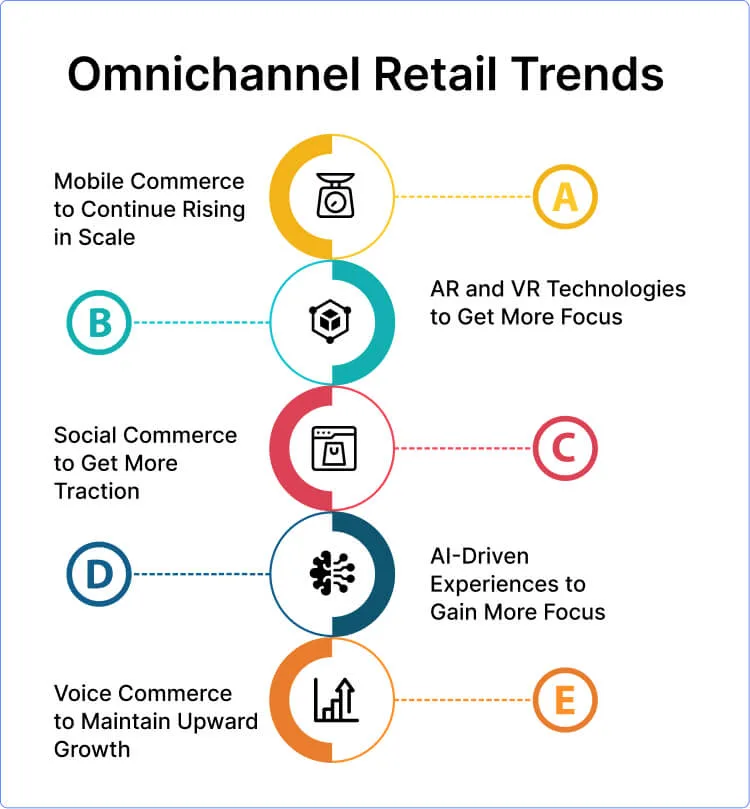The Evolution of Retail
Retail has undergone a significant transformation over the past decade, driven by technological advancements and changing consumer behaviors. The rise of e-commerce has disrupted traditional brick-and-mortar stores, forcing retailers to adapt or risk obsolescence. As I navigate through this evolving landscape, it’s clear that the future of retail is not just about online versus offline; it’s about creating seamless, integrated experiences that cater to the modern consumer.

According to a report by McKinsey, “The COVID-19 pandemic accelerated the shift towards digital commerce by several years.” This shift has not only changed how consumers shop but also how they expect to interact with brands. The challenge for retailers is to meet these heightened expectations while maintaining profitability.
The Rise of E-commerce
E-commerce has become the cornerstone of modern retail, offering convenience and accessibility that traditional stores cannot match. Platforms like Amazon and Shopify have revolutionized the way consumers purchase goods, providing a vast array of products at their fingertips. As I delve into the numbers, it’s evident that e-commerce is here to stay.
- Growth Statistics:
- E-commerce sales in the U.S. grew by 32.4% in 2020.
- Online sales accounted for 14% of total retail sales in 2020.
- Mobile commerce is expected to reach $432 billion by 2024.
The Omnichannel Experience
While e-commerce is booming, it’s not the end-all-be-all. Consumers still value the in-store experience, but they expect a seamless integration between online and offline channels. This is where omnichannel retail comes into play. Omnichannel retailing involves creating a cohesive shopping experience across all channels—online, in-store, mobile, and social media.
A study by PwC found that “73% of shoppers use multiple channels throughout their shopping journey.” This underscores the importance of an omnichannel strategy. As I explore this concept further, it becomes clear that retailers must invest in technology and data analytics to create personalized experiences that bridge the gap between digital and physical worlds.
The Role of Technology
Technology is the driving force behind the future of retail. From AI-driven personalization to augmented reality (AR) and virtual reality (VR), the possibilities are endless. As I examine the role of technology in retail, it’s evident that those who embrace innovation will thrive.
- Technological Innovations:
- AI and machine learning for personalized recommendations.
- AR and VR for immersive shopping experiences.
- Blockchain for secure and transparent transactions.

Sustainability and Ethical Retail
In addition to technological advancements, sustainability and ethical practices are becoming increasingly important to consumers. As I consider the future of retail, it’s clear that brands must prioritize sustainability to remain competitive.
A survey by Nielsen found that “81% of global respondents feel strongly that companies should help improve the environment.” This shift in consumer sentiment is driving retailers to adopt more sustainable practices, from reducing carbon footprints to ensuring ethical labor practices.
The Future of Retail: A Hybrid Model
As I look ahead, the future of retail is not about choosing between e-commerce and brick-and-mortar stores. Instead, it’s about creating a hybrid model that leverages the strengths of both. This hybrid model will allow retailers to offer the convenience of online shopping with the experiential benefits of in-store shopping.

The Importance of Customer Experience
At the heart of this hybrid model is the customer experience. As I reflect on the lessons learned from the past few years, it’s clear that customer experience is the key differentiator. Retailers who prioritize customer experience will be the ones who succeed in this new landscape.
A quote from Jeff Bezos, “If you make customers unhappy in the physical world, they might each tell 6 friends. If you make customers unhappy on the Internet, they can each tell 6,000 friends,” highlights the importance of customer experience in the digital age.
As I conclude my exploration of the future of retail, it’s evident that the industry is on the brink of a new era. E-commerce, omnichannel retail, and technological innovation are reshaping the landscape, but at the core of it all is the customer. Retailers who can adapt to these changes and prioritize customer experience will be the ones who thrive in the years to come.








